
The AIgorythm project

Playwright and actor
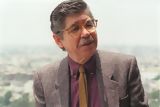
Novelist

Writer and poet

Volleyball player

Italian-Peruvian naturalist and geographer

Singer and percussionist

Last Inca emperor

Politician, former prime Minister

Journalist and TV host
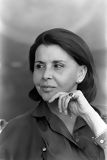
Poet

Inca warrior

Actor and comedian

Biophysicist

Poet

Doctor and researcher

Businessman, Interbank group

Journalist and writer
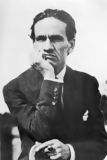
Poet and writer

Singer and songwriter
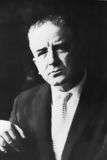
Writer

Film director, Berlin Golden Bear winner

Football player
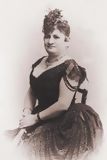
Writer and journalist
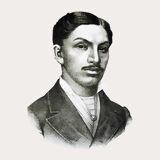
Doctor and scientist

Photograph

Chess player

Industrialist

Former general

Specialist in public health

Actress and singer

Afro-Peruvian music singer

Mathematician and engineer

Indigenous chronicler

Neurologist and anthropologist

Painter

Football player
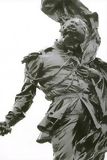
National hero, military leader

Intellectual and reformer

Chef and entrepreneur

Fashion designer

Singer-songwriter

TV presenter

Marathon runner

Indigenous Peruvian chronicler

Theologian

Former national team captain

Economist and former health minister

Inca princess

Writer and television host

Folk musician

Poet and guerrilla
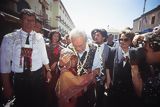
Former UN secretary-general

Chef, known for fusion cuisine

Football player

Peruvian aviation pioneer

Poet and artist
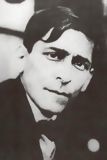
Marxist philosopher and writer

Industrialist and businessman
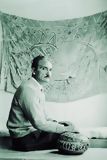
Novelist and ethnologist

Painter and muralist

Opera tenor

Fashion designer

Cardinal of Lima

Peruvian tennis player

Football coach

Leader of the indigenous rebellion

Military hero
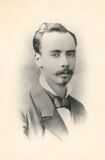
War of the Pacific hero

The youngest mother in history

Politician
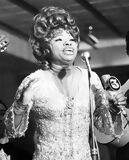
Creole music singer

Tennis player
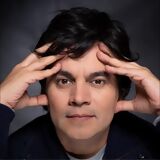
Musician

Writer and politician

Politician and founder of the Christian Democratic Party

Founder of Sodalitium Christianae Vitae

Archaeologist and anthropologist
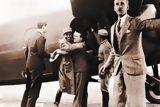
Military leader and politician

Television host

Actress and singer

Contemporary sculptor

Women’s rights activist

Beauty queen

Astrophysicist

Heroine of independence

Mathematician and archaeologist

Historian and anthropologist
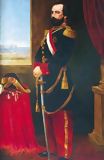
Military figure and historical figure

Fashion photographer
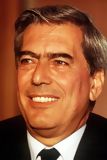
Writer, Nobel Prize in Literature, Politician

Revolutionary leader
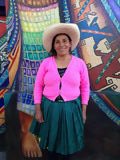
Environmental activist

Leader of the indigenous rebellion

Musician from Gaia band
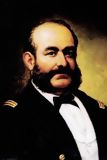
War hero
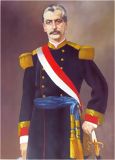
Military leader and politician

Chef, known for Nikkei cuisine

Volleyball coach and former player

Environmental activist

Television personality

Writer

Football player

Epidemiologist and former health Minister

Inventor and aerospace pioneer

Soldier and inventor

Rock singer

Chef and co-owner of Central restaurant

Painter

Football player

TV presenter and actress
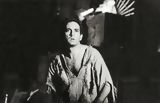
Actor
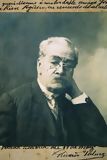
Writer and historian

Journalist and lawyer

Archaeologist, founder of Caral site
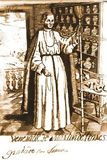
Monk and Saint
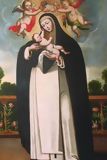
Saint, patron of Latin America

Physicist and engineer

World champion surfer

Actress

Oncologist

Singer, Latin Grammy winner

Former mayor of Lima

Singer

Actress

Former football player

Painter
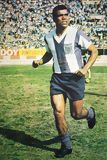
Former football player

Painter

Inca leader

Archbishop, saint
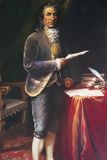
Leader of the indigenous rebellion

Revolutionary indigenous leader

Diplomat and intellectual

Sculptor and painter
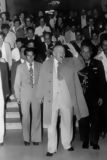
Political leader, founder of APRA

Lawyer and Former prime minister

Chef of Central restaurant

Former head of secret services

Popular singer

Fashion designer

Exotic music singer
Chabuca Granda, born MarÃa Isabel Granda Larco on September 3, 1920, in ApurÃmac, Peru, is one of the most iconic figures in Peruvian music. Known for her compositions deeply rooted in Peruvian and Andean traditions, Chabuca left an indelible mark on her country's culture, both for the depth of her lyrics and the originality of her compositions. She is particularly famous for her ability to fuse traditional musical styles with Afro-Peruvian and Andean elements, making her a unique figure in the world of music.
Chabuca Granda was born into a wealthy family in ApurÃmac, in the Peruvian Andes. From a young age, she displayed a keen interest in music and poetry. In her teenage years, she moved with her family to Lima, where she began formal musical training. The diversity of musical influences in Lima, the capital of Peru, significantly shaped her style, which combines elements of the traditional Peruvian waltz (valsa criolla) with Afro-Peruvian and Andean rhythms.
Chabuca's first successes came in the 1940s when she started writing and performing criollo waltzes. However, she did not confine herself to traditional styles. Her compositions quickly evolved, incorporating new rhythms and more complex melodies, which set her apart from many artists of her time. Her uniqueness was already recognized, but it was with the song La flor de la canela that her career truly took off.
In 1950, Chabuca Granda wrote and composed one of her most famous songs, La flor de la canela. This song became a cultural icon in Peru and beyond. It tells the story of a mestiza woman from Lima and celebrates the beauty and cultural richness of the Peruvian capital. The song, imbued with nostalgia and poetry, symbolizes Peruvian national identity and is today recognized as one of Peru's unofficial anthems.
With La flor de la canela, Chabuca Granda touched the hearts of millions. The song quickly gained popularity, not only in Peru but also in other Latin American countries. Its international success cemented her place as an influential voice in Latin American music.
Beyond her musical success, Chabuca Granda was also known for her social and political commitment. In the 1960s and 1970s, she became increasingly involved in issues of social justice and the rights of marginalized communities, particularly Afro-Peruvians and indigenous peoples. These concerns are reflected in some of her songs, where she addressed themes of injustice, discrimination, and poverty.
Chabuca Granda played a vital role in the recognition and promotion of Afro-Peruvian musical traditions. She collaborated with artists from these communities, helping to bring national and international visibility to genres like festejo and lando, traditional Afro-Peruvian rhythms. Her openness to these influences not only enriched her own music but also contributed to the revival of Afro-Peruvian music.
Throughout her career, Chabuca Granda continuously pushed the boundaries of her art. In her later years, she experimented with more modern musical forms, incorporating elements of jazz and classical music into her compositions. She also worked on more experimental pieces, while always maintaining a strong foundation in Peruvian musical traditions.
Among her other famous songs are Fina estampa, a tribute to masculine elegance, and Cardo o ceniza, a deeply emotional song that explores themes of love and suffering. These songs showcase the diversity of her repertoire, ranging from joyful celebrations of Peruvian culture to darker, introspective reflections on the human condition.
Chabuca Granda passed away on March 8, 1983, in Lima, but her influence on Peruvian music and culture remains undeniable. She is often considered one of Peru's greatest artists, alongside figures such as Yma Sumac and Susana Baca. Her songs continue to be performed and reinterpreted by artists of all generations, and her impact on Latin American music is still felt today.
In 2017, to mark the centenary of her birth, a series of tributes were held in Peru and abroad, reaffirming the importance of her artistic legacy. Chabuca Granda embodies the perfect fusion between tradition and modernity, and her compositions will remain forever engraved in the hearts of Peruvians and music lovers worldwide.
Her commitment to promoting Peru's cultural roots, her constant innovation, and her deep humanism make her an eternal artist, whose work transcends borders and eras.